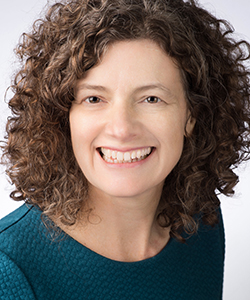Cornerstones of an educator's challenge is knowing what to teach and how to teach it
An educator's challenge is knowing what to teach and how to teach it
By Tracy Crow
October 2010
A key finding in the first report from Learning Forward’s ongoing research project on the status of professional learning in the U.S. states: “Effective professional development is intensive, ongoing, and connected to practice; focuses on the teaching and learning of specific academic content; is connected to other school initiatives; and builds strong working relationships among teachers. However, most teachers in the United States do not have access to professional development that uniformly meets all these criteria” (Darling- Hammond,Wei, Andree, Richardson, & Orphanos, 2009).
As is clear from this finding and dozens of research studies, content knowledge is essential. Joellen Killion, Learning Forward’s deputy executive director, illustrates this point beautifully in a story in one of her columns for the Teachers Teaching Teachers newsletter. In writing about the Quality Teaching standard, Killion explains the need for skillful teachers to integrate teacher content knowledge, instruction, and assessment. As she gives examples to support her point, she remembers attending a mathematics educators conference, where a general session facilitator asked attendees to comment on a videotaped teaching lesson. Killion at first held back and, when no one else spoke, shared her opinions about all of the things the teacher did right in the lesson: how she engaged the students, how she talked about the concept in concrete ways, and so on. Others in the session chimed in. Killion writes, “Shortly into the participants’ comments, a distinguished gentleman (I learned later that it was Hyman Bass, world-renowned mathematics educator and researcher) rose from the dais, approached the microphone, and stated, ‘Yes, you are correct. Because she taught so well, it is now unlikely that these students will unlearn the incorrect concept she taught them in this lesson. Just because she can teach well does not mean she can teach the content accurately’ ” (Killion, 2010, p. 9).
Killion continues, “My experience in being too quick to look at the practice of teaching through a purely pedagogical lens has helped me look more carefully at teaching as a nexus of the content, teaching, learning, and assessment.”
As Killion stresses, content is essential, but it isn’t the only consideration. Lee Shulman (1986) coined the term “pedagogical content knowledge” to represent the intersection of knowing a subject matter well and knowing also how to teach that subject. Pedagogical content knowledge includes knowing how to make key aspects of a subject comprehensible to students and understanding what topics are easier or harder to learn. Shulman argued that teachers need a wide range of strategies for teaching their content area, strategies they gain through research and practice. Deborah Ball (2000) recognizes the ongoing tension (since the time of Dewey) between subject matter pedagogical knowledge in teacher education and notes also what some see as another competing priority — attending to a diverse student body equitably. Yet, as she states, a deep understanding of a content area serves all students well: “Knowing content is … crucial to being inventive in creating worthwhile opportunities for learning that takes learners’ experiences, interests, and needs into account” (p. 242). The challenge, Ball notes, is that teacher learning is fragmented, and teachers are left on their own to integrate subject matter, pedagogy, and myriad other concerns.

Tracy Crow served as chief strategy officer for Learning Forward.
Recent Issues
LEARNING DESIGNS
February 2025
How we learn influences what we learn. This issue shares essential...
BUILDING BRIDGES
December 2024
Students benefit when educators bridge the continuum of professional...
CURRICULUM-BASED PROFESSIONAL LEARNING
October 2024
High-quality curriculum requires skilled educators to put it into...
LEARNING TO PIVOT
August 2024
Sometimes new information and situations call for major change. This issue...









